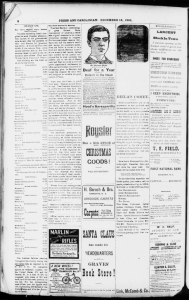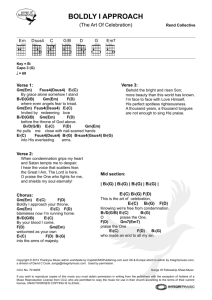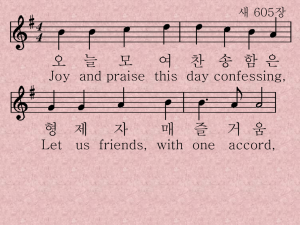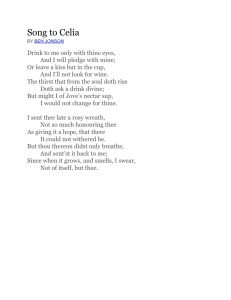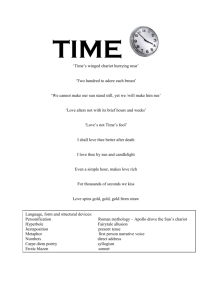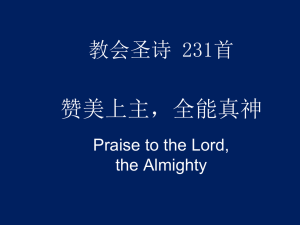Open PDF
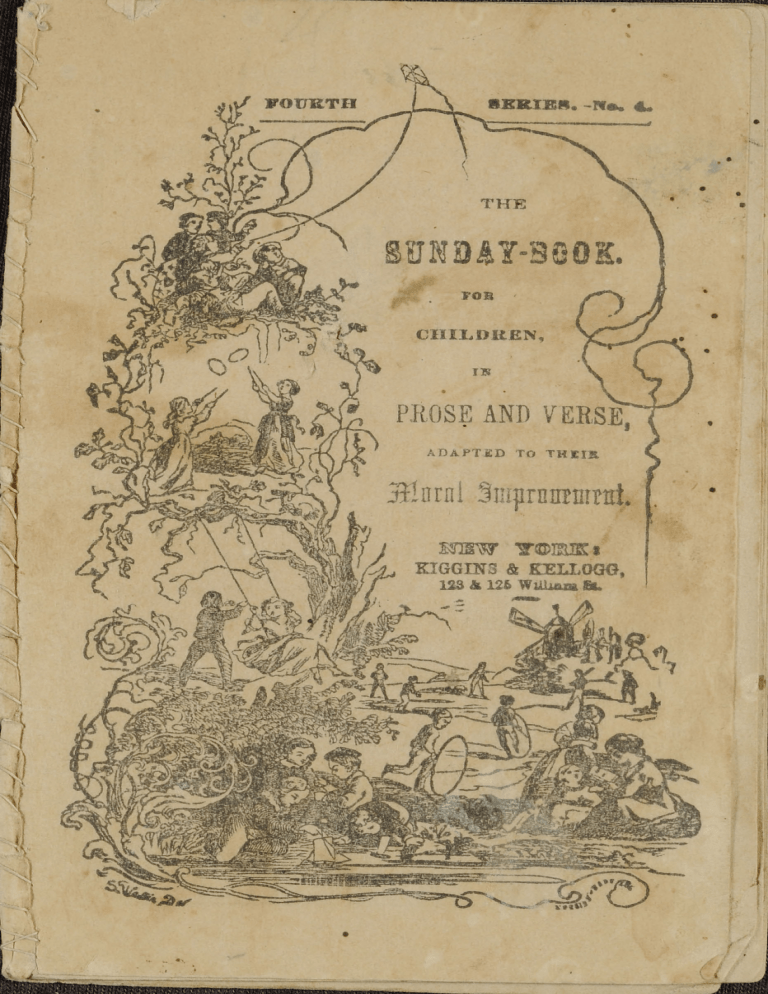
FO U R T H S E R I E S . - N o . 6 .
TH E
SUNDAY-BOOK.
F O R
C H IL D R E N ,
IN
PROSE AND
VERSE,
A D A P T E D TO T H E I R
M o ra l Improvement.
NEW YORK:
KIGGINS & KELLOGG,
123 & 125 William St.
KIGGINS & KELLOGG,
Publishers, Booksellers, and Stationers,
Nos. 123 & 125 William St., N. Y.
ALSO M ANUFACTURERS O F E V E R Y DESCRIPTIO N OF
ACCOUNT BOOKS,
MEMORANDUMS and PASS BOOKS, a large Stock of which is constantly kept on hand.
Their Assortment of
AND
M I S C E L L A N E O U S B O O K S ,
and of Foreign and Domestic
S T A T I O N E R Y , is very complete, to the inspection o f which they would invite COUNTRY MERCHANTS before purchasing elsewhere.
JU S T P U B L IS H E D ,
REDFIELD'S TOY BOOKS
,
FOUR SERIES OF T W ELVE BOOKS EACH,
BEAUTIFULLY ILLUSTRATED,
F R O M D E S I G N S BY J. G. C H A P M A N .
PRICE S, O N E , T W O , F O U R , A N D S IX C E N T S .
THE
JUVENILE SUNDAY-BOOK;
CON T A I N I N G
SKETCHES IN PROSE AND VERSE
A D A P T E D T O T H E
MORAL IMPROVEMENT OF THE YOUNG.
N E W Y O R K :
K I G G I N S & K E L L O G G , P U B L I S H E R S ,
Nos. 123 & 125
W i l l i a m S t r e e t ,
Between John & Fulton.
THE
J U V E N I L E S U N D A Y - B O O K .
THE VOICE OF PRAYER.
B EAUTIFUL is it to see the little chil d, put its tiny hands together, and lisp its accents of praise to a Being—ideal and invisible—but presented to the young mind as the embodiment of condescending affection and glory unsurpassed.
To our mind religion is one of the brightest charms of childhood. The adult man may be em broiled in the harsh conflicts of the world—he may be thrust out of the track of sedate contemplation, and may be unthoughtful of those higher duties which all Christians should observe—but the child ! gentle in movement and pure in aspiration—with mind untainted by care or worldly ambition—in form like an angel, round it religion sheds a ra diance which not only illumes its own earthly path, but penetrates with genial warmth into the breast of its elders—soothes the tempestuous waves of life, and wins them into a regard for the inestima ble privilege of addressing the great “ I AM
” of the universe, in the language of supplication and devotional love.
We shall never forget the electrical effect pro duced on our mind by the reading of a letter written by a young girl in which she said—“ Good
4 T H E J U V E NI LE S U N D A Y - B O O K .
night, dear mother, I must say my prayers and go to bed.”
She was a gay, light-hearted creature, and the expression was written in the gay, confidential sim plicity of youthful love. To hear the clear, ringing notes of her joyous laugh, one would never sup pose that a serious idea had ever crossed her thought, but she was far from the voice of mater nal instruction, and in the calm quiet of her solitary chamber, while cheerfully conversing with rever ed ones at a distance, she did not forget to ap proach her great Father with love and adoration.
Religion requires not a gloomy face, nor mel ancholy eyebrows. It may exist in its purity with in the most beauteous form, and cheerfulness is its most valuable accompaniment. Alas ! that the gentle beings who intuitively feel its influence, as if the unerring hand of nature had imprinted a beautiful image of the Savior on their hearts— should be the first to bid adieu to terrestrial scenes, as if their spirits were too pure to be contaminated with the gross appetites and polluted atmosphere of earth.
T H E J U V E NI L E S U N D A Y - B O O K .
5
THE CHURCHYARD.
T h e moon rises bright in the east,
T h e stars w ith pure brilliancy shine ;
T h e songs o f th e woodlands h a v e ceased,
And still is the lo w o f the kine.
T h e men from their w ork on the hill,
T rudge hom eward w ith pitchfork and flail,
T h e buz o f the h am let is still,
And the bat flaps his w ings in the gale.
A nd see from those darkly green trees,
O f cypress and h o lly and y e w ,
T h a t w a v e their black arms in the breeze,
T h e old villa g e church is in v ie w .
T h e o w l from her ivied retreat,
Scream s hoarse to the w inds o f the night ;
And the clock, w ith its solemn repeat,
H a s tolled the departure o f ligh t.
6
T H E J U V E N I L E S U N D A Y - B O O K .
M y child, le t us wander alone,
W h e n h a lf the w id e world is in bed,
And read over the m ouldering stone,
T h a t tells o f the m ouldering dead
And le t us rem ember it w ell,
T h a t w e m ust as certainly die,
F o r u s too m a y toll the sad b ell,
A nd in the cold earth w e m ust lie .
T h o u art not so h ea lth y and gay,
S o young, so active and bright,
T h a t death can not snatch th ee a w a y ,
Or som e dreadful accident sm ite.
H e r e lie both the you n g and the old,
Confined in the coffin so sm all,
And the earth closes over them cold,
And the grave-w orm devours them all.
In vain w ere the b ea u ty and bloom
T h a t once over their bodies w ere spread ;
N o w still, in the desolate tomb,
E a ch rests h is inanim ate head.
T h e ir hands, once so active for play,
T h eir lip s w h ich so m errily sung,
N o w senseless and m otionless lay,
A nd s tiff is the chattering tongue.
T h e n se ek not, m y child, as the best,
T h o se things w h ich so shortly m ust fade
L e t p iety d w ell in th y breast,
A nd all o f thine actions pervade.
A nd then w hen beneath the green sod,
T h is active young body shall lie,
T h y soul shall ascend to its God,
T o liv e w ith the blest in the sk y .
T H E J U V E N I L E S U N D A Y - B O O K .
7
THE VAIN BEAUTY.
ROSE was alone in her mamma’s dressing-room.
" What was she doing ? Learning her lesson, I suppose, or reading some sweet story in the Bible, or some nice useful thing or other.” —“ No; she was not doing this.”—“ Oh, then, perhaps she was at work, helping to finish something for her dear mamma, or making a cap or frock for a poor child.”—“ No, no; it was none of these—you can not guess it ; and I must tell you, I am ashamed to say, that little Rose was standing admiring herself in the looking-glass.”—“ Oh, dear, how vain little
Rose must have been!”—“ Yes; I am afraid she was so. She had heard some people remark,
‘ Miss Rose is quite a beauty.’ One praised her eyes, another her mouth ; one took notice of her nice hair, and another of her red cheeks ; and Rose was much pleased : and as she walked about the house she said to herself, ‘ I am a beauty—every-
8
T H E J U V E N IL E S U N D A Y -B O O K .
body admires me ;' and so she very much admired herself.
“ Now, was not Rose very silly ? She had seen wax dolls, a great deal prettier than herself, and she heard them called beauties too ; and every thing that had been said about her eyes, and her mouth, and her hair, and her cheeks, might be said of a doll. And Rose had had pretty toys, which she had thought much of at first ; but after a little while, she had broken them, or thrown them away, or forgotten them. And the silly people, who talk ed of Rose’s beauty, cared not a bit more for her in their hearts, than she did for her old toys. They thought her a little fool, or they would not have talked so to her ; and if they had peeped in at the door, and seen Miss Rose before the glass, how they would have laughed, should not you ?"—
“ Why, no ; I don’t think I should have laughed ;
I should have been very much grieved.” —“ Ah, yes ; you are right. There was One looking at
Rose, whom she did not think about, the Almighty
God, who always sees what we do, and hears what we say, and knows what we think. Rose was proud ; and God hates pride. The Bible says,
' the proud he beholdeth afar off,’ that is, he will not let them come near him. How dreadful ! for if God does not keep us near him, we are left in the power of the devil, to deceive and destroy us.
It is also said in the Bible, that when the prophet
Samuel made Jesse’s sons to pass before him, he saw one of them very beautiful, and he thought perhaps the Lord had chosen him. But the Lord said unto Samuel, ‘ Look not on his countenance, nor on the height of his stature, because I have re fused him : for the Lord seeth not as man seeth ;
T H E J U V E N IL E SUN D A Y - B O O K .
9 for man looketh on the outward appearance, but the Lord looketh on the heart.’ So, when Rose was gazing at herself in the glass, and thinking of her beauty, the Lord was looking at her heart, and beholding her afar off ; the poor Rose was more to be pitied than any humble beggar-child, whom the Lord loves.’
THE MOTHER’S WISH.
M AY cloudless beam s o f grace and truth
Adorn m y daughters’ opening you th ;
L o n g h appy in their n ative hom e,
A m ong its fragrant groves to roam,
M a y choicest blessings them attend,
B le st in their parents, sisters, friend !
M a y no rude w ish assail their breast,
T o lo v e th is world, b y all confest
A s on ly given u s to prepare
F or one eternal, bright, and fair.
T h is world shall then no force retain
Its syren voice shall charm in vain ;
R elig io n ’s aid, true peace w ill bring,
H e r v oice w ith jo y shall praises sing
T o H im w h ose stream s o f m ercy flow ,
T o cheer the heart o’ercharged w ith w o ,
And w h ile retirem ent’s sw eets w e prove,
F or ever praise redeem ing lo v e.
1
*
10
T H E J U V E N IL E S U N D A Y -B O O K .
THE POWER OF FAITH—THE DEATH-BED.
I T was a sultry evening in July. The trees that overshadowed the little cottage of the Murrays were still—not a breath of air stirred their dense foliage. The vines that clustered round the open window were parted widely asunder, to invite the fresh air within. The curtains were thrown back from the bed, on which lay a lovely child. She seemed not more than twelve years old, but sick ness and suffering had stamped the impress of thought on her fair brow, and gave to her exceed ing loveliness a depth and spirituality that at once charmed the eye and filled the heart with sad foreboding.
She was dying. Her mother leaned over her tenderly, bathing her pale brow, and moistening her parched lips. Her sister knelt beside her, clasping her thin pale hand in both of hers, and in deep, low sobs, gave utterance to the grief she could not repress. Her father, with mingled emo tions of the tenderest love, and pure confiding faith, stood near and breathed words of consolation to the little sufferer.
“ My daughter,” said he, and his voice trembled, while tears rolled slowly down his cheeks, “ tell me, is your faith yet strong in God ? Have you, in this dark hour, confidence in your Savior ? Can you trust all to him ?”
The child raised her meek eyes expressively to heaven, and replied, “ Yes, my father, though I walk in the valley of the shadow of death, I fear no evil—gentle angels are all around me. They beckon me to follow them, and I hear the voice
T H E J U V E N IL E S U N D A Y -B O O K . 1 1 of the good Shepherd calling me home. Father, mother, sister, farewell !” With that last, softly breathed “ farewell,” the pure spirit departed.
The mother pressed her pale lips with passion ate fondness. The father laid his hand gently on her cold, damp brow, and groaned in bitterness of spirit. The sister wept, and with wild anguish called upon the departed.
For a moment nature triumphed. The fearful reality of death was before them. The form they had so loved and cherished, lay cold and insensible as the grave, for which she was now to be robed.
The sweet voice, whose tones of gentle mirth cheered their humble home, now hushed for ever.
The graceful form, on which the eye of affection loved to rest, must be consigned, to darkness and decay. Oh ! the bitter anguish of that dark hour !
Faith, for a moment, forgets her holy trust. Hope lies withered and dead, and the bereaved heart clings with fondest love to its earthly treasure.
But now a soft light beams from the world of brightness and bliss upon the overburdened spirit, and a voice, gentle as the breath of Eden, whispers,
“ She is not here, she hath arisen !” Holy triumph now fills the soul, as it turns its eager gaze from the shadows of death to the city of the New Jeru salem, the paradise of God. From the darkness and silence of death arose a holier, purer faith, soaring above the changes of earth to the unfading beauty and glory of heaven.
My young friends do you ask what is that voice that thus brings peace to the troubled spirit ?
W ould you know whence comes the light that can thus, in a moment, dispel the gloom of the grave, and shed its soft radiance over the valley of the shadow
1 2 T H E J U V E N IL E S U N D A Y - B O O K .
of death ? It is religion—not the religion of the lips, but the religion of the heart—faith in God— holy trust in the Redeemer, who loved us, and gave himself a ransom for us, that we might be saved.
The dying child looked to the strong for strength, and she was sustained. The sorrowing parents looked to the merciful for comfort, and they were comforted. No earthly consolation could have brought peace to their spirits in that sad hour.
The balm of earthly love could not heal their bruised and broken hearts. The spirit of consola tion and grace could alone wipe away all tears from their faces, and point with a sure and steadfast faith to the inheritance of the saints in heaven.
THE LARK.
F ROM his hum ble grassy bed,
S e e the w arbling lark arise !
B y h is grateful w ish es led,
T hrough those regions o f the skies.
Songs o f thanks and praise h e pours,
H arm onizing airy space,
S in gs, and m ounts, and higher soars,
Tow ard the throne o f h ea v en ly grace.
S m all his gifts compared to m ine,
P oor m y thanks w ith his com pared ;
I ’ve a soul alm ost divine ;
A n gels’ blessin gs w ith m e shared.
W a k e m y soul ! to praise aspire,
R eason, e v e r y sense accord, j o in in pure seraphic fire,
L o v e and thank, and praise the L ord.
T H E J U V E N I L E S U N D A Y - B O O K .
13
BE KIND TO THE UNFORTUNATE.
SPEAK kindly to this poor man—speak kindly— for his spirits are sad and his heart is heavy. No friend has he in the wide world ; he is a stranger among strangers. Once he was wealthy, possessed friends in abundance, and was happy. Parents smiled upon him, and sisters were affectionate.
But he was unfortunate ; his property is gone, friends, like summer-birds, have flown at the first chill of misfortune’s blast ; his relations are dead.
One after another he has followed them to the nar row house ; and now he is alone. Alone ! What feelings does not the word awake in the heart ?
Alone in the world—who would be alone ? With none to smile upon him, none to speak kindly to him, none to love him. Sad, indeed, must, be his lot. Take him by the hand, brush away his tears, and cheer his heart, if but for a moment. You will feel happier for the deed, and on your pillow at night, you can look back on a bright spot—a beau tiful oasis in the dreary march of life.
14
T H E J U V E N IL E S U N D A Y - B O O K .
TO MY MOTHER IN HEAVEN.
B Y M A R Y M . G L O V E R .
I SEE th ee m id the shining throng
O f angels, robed in lig h t !
W h e r e prayer is changed to praise profound
A nd d ay exclu d es the nigh t ;
Y e t gentle seraph-spirit, com e—
Com m une w ith m e once more,
A nd to m y lo n ely bosom ’s sigh,
A solemn peace restore.
F o r ever near, that earnest e y e
W h ic h turned in death to m e,
S e e m s follow ing w atch fu l, silen tly,
M y w andering steps to see ;
T h a t I m a y bear its blessing on,
T h o u g h future tears shall flow
A token o f consoling lo v e —
E ’en from that hour o f w o !
H o w springs the v e il o f tim e aside
A t m em ory’s m ig h ty sp ell !
W h o se harp-strings’ deep and breaking tones
A la st lo w murmur sw e ll ;
T H E J U V E N IL E S U N D A Y - B O O K .
And sm iling back, th ey com e ! the dead,
From the grave’s bondage free,
E ’en in the heart’s full tone to speak,
And look in love on m e.
T h e w ild w ind’s track, the stars w hich light
T h eir shining lam ps on high,
P o in t to th y rest, th y being bright,
T h y hom e beyond the sk y !
And all w ith mournful m em ories blent,
N o hopes o f earth restore—
Oh, w inds and stars m ay wander b y,
T h y footsteps are no more !
Y et round the sad, forsaken hearth,
A t vesper hour, sw eet prayer
On trembling pinions soars to H e a v e n
T o m ingle w ith thee there ;
And bless th ee for this glorious hope,
And m e e k ly kiss the rod,
A s w h en thy spirit once did lift
T h e trust o f mine to God !
I bless th ee, m other, precious guide
F o r m y m ost sacred share
In all the secrets o f th y heart,
T h y sorrow and th y prayer ;
Supporting faith be m ine b elow ,
L if e ’s parting words to greet ;
T h y m antling virtues o’er m e throw,
T ill child and m other m eet!
And som etim es in soft vision blest,
V is it m y lone repose,
And bear from thine ow n w orld o f rest
Som e balm for hum an w oes ;
T ill, clothed in robes o f righteousness,
Errors o f earth forgiven—
W ith thee w e m eet, “ no wanderer lost,
A fam ily in h ea v en .”
1 5
16 T H E J U V E N I LE S U N D A Y - B O O K .
THE HAPPY GIRLS.
A L L may be happy. If they are poor and have only plain clothes and coarse food, they may be good and active and cheerful, and they will be happy. If they are rich they may not only have nice pleasant things for themselves, but enough to spare to the poor who have none to help them ; nor are the poor deprived of this source of pleasure : they too can share their loaf with the hungry and give shelter to the weary and homeless wanderer.
There is Lucy who lives in that handsome house.
She is rich, but she has not been spoiled by bad management, she has been taught to share her pleasures with her friends and to give of her own allowance to those who need. Everybody loves her, she does not look with contempt on other girls because they are poor, or give herself airs and treat them unkindly because they wear plain frocks and leather shoes. Her kind mother has taught her
T H E J U V E N IL E S U N D A Y -B O O K .
1 7 that it is wrong to judge of people by their dress, and she knows that she is no better than the poor est, f or all are the children of one Father, who loves alike the poor and the rich.
In an humble cottage, almost in the shadow of that splendid mansion, lives a poor girl, who is as gentle and lovely as her rich neighbor. She lies down at night on her pallet of straw, with a heart thankful for shelter and rest. She awakes in the morning and springs lightly from her humble bed, for she has no headache or dull, bad feelings, which are the result of too much rich food. Her sweet voice rivals the songs of the birds, and her merry laugh is pleasant music to the ear of the widowed mother. All day long, Jane is employed, for she loves her mother tenderly and strives to do all she can to lighten her cares and sooth her affliction— and how much does she find to do for her poor neighbors ! The poor understand better than the
1 8 THE JUVENILE SUNDAY-BOOK.
rich the wants of the poor, and how best to relieve them—and the cheerful voice and ready, skilful hand of the cottage-girl have brought comfort and hope to many a desponding one.
She does not look with envy on the rich and caressed Lucy. She knows that riches are not needful for happiness, for she has the warm love of many fond hearts, and who could not love her better, if she had all the wealth in the world ; and although she sometimes thinks of the many blessings she could bestow upon others, if she possessed the means, yet she does not complain of her lot in life.
These two girls are happy because they are good ; while those that are selfish, and envious, and proud, whether rich or poor, can not be hap py. God has so formed us, that if we would be happy ourselves, we must contribute to the happi ness of others. We were not made to live alone
—to enjoy or suffer alone. If we would taste the highest pleasure that life can bestow—if we would lighten the burden of its bitterest sorrows, we must bind our hearts to the hearts of our fellow-creatures by the bonds of kindness and sympathy, and as children of one family, humbly trust in our Heav enly Father’s love.
CHILD’S EVENING PRAYER.
LORD, this d ay th y hand has led m e,
And I thank th ee for th y care,
T h o u h ast clothed m e, w arm ed m e, fed m e.
L iste n to m y evening prayer.
L e t m y sins be all forgiven,
B less the friends I love so w ell,
T a k e m e, w h en I die, to heaven,
H a p p y there w ith th ee to dw ell.
T H E JUVENILE SU NDAY-BOOK. 1 9
WINTER.
BEHOLD the gray branches that stretch from the trees,
Nor blossom, nor verdure they wear !
They rattle and shake to the northerly breeze,
And wave their long arms in the air.
Oh, how many wretches without house or home,
Are wandering naked and pale ;
Obliged on the snow-covered common to roam,
And pierced by the pitiless gale.
No house for their shelter, no victuals to eat,
No beds for their limbs to repose ;
Or a crust dry and mouldy the best of their meat,
And their pillow, a pillow of snows.
Be thankful, my child, that it is not thy lot,
To wander an orphan and poor ;
A father, and mother, and home, thou hast got,
And yet thou deserved them no more.
Be thankful, my child, and forget not to pay
Thy thanks to that Father above,
Who gives thee so many more blessings than they,
And crowns thy whole life with his love
2 0
TH E JUVENILE SU N D A Y -B O O K .
THE UNTRUTH.
W I T H a sad heart, Anna stood by her mother’s knee, while her little sister Clara, with infantile fondness, was hanging round her neck. Anna was ready to go to bed, and her mother had bidden her to kneel down and say her evening prayers. What ailed little Anna ? Never before was her mother obliged to require her to kneel to her usual devo tions. She always came cheerfully, and with sim ple earnestness asked God for Christ’s sake to bless her and make her a good girl. But to night she stood irresolute, her eyes were filled with tears, and when her mother bade her kneel, she drew back and said, “ Not to night, mamma, I don’t want to pray to night.”
“ Why not, my child ?” said her mother tenderly.
“ Because, mamma,” said she sobbing, “ because
I have been so very naughty God won’t hear me if I do pray.”
T H E JUVENILE SU N D AY-BO O K .
21
“ My daughter,” said her mother, “ what have you done ? tell me all.”
“ Oh, mamma,” said the little girl, " I was so wicked. I am afraid you’ll never love me again as you used to, if I tell you, for God knows it all, and he don’t love me as he did, I know, and I can’t pray now, I’m so wicked.”
“ My daughter, just tell me what you have done,” said her mother.
“ Well, mamma, you remember to-day when I asked to play in the garden, you told me not to touch the green grapes. I said I would not, but while I was running along they looked so pretty, and one bunch was just beginning to turn a little purple on one side—indeed I thought it was near ly ripe ; I looked all around to see if any one was near, and I thought you would never know if I did pull just that one bunch, so I gathered it, and ran down to the bottom of the garden beyond the wil lows, where no one could see me to eat them.
But they were so sour I could not touch them, so
I threw them over the wall, and ran back to play, but I felt so mean and naughty. When I came to the house, you said ‘ Anna, did you remember not to touch the grapes when you were in the gar den ?' I don’t believe you thought I had done so, for you did not look at me, and I knew you thought you could trust me. I felt my cheeks burn, but I said very softly, " No, mamma." Oh, I wish I had never told that ugly lie. I do think
I’ll never do it again, I had rather be punished twenty times than to feel so mean. Do you think
God can forgive me, mamma ?”
“ Yes, my daughter,” said her mother, “ if we confess our sins he is faithful and just to forgive
2 2 TH E JUVENILE SU N D AY-BO O K .
us. I hope you have confessed your sin to your
Heavenly Father, and asked his forgiveness.”
“ Yes, mamma, I have, and if he will only for- give me, and love me, I’ll never do so wickedly again.”
“ May God strengthen you to keep your prom ise, my child,” said her mother, “ and never forget that he is everywhere, that he knows our most secret thoughts, and though we may put the re membrance of him far from us, and follow the desires of our corrupt hearts, yet for all these things he will bring us into judgment.”
HYMN FOR CHILDREN.
JESUS, Lord o f life and glory,
F riend o f children, hear our la y s ;
H u m b ly w ould our souls adore th ee,
Sin g th y name in hym ns o f praise.
W e are debtors to th y kindness,
God o f grace and boundless lo v e
T housands w ander on in blindness,
Strangers to the lig h t above.
B u t ’tis ours to read the pages
W h e n c e the rays o f glory flow
And, through everlasting ages,
W e aspire its bliss to know
Jesu s, on thine arm relying,
W e w ould tread this earth ly v ale
B e our life w h en w e are dying,
B e our strength w hen life shall fail
THE JUVENILE SUNDAY-BOOK.
2 3
THE CHILD’S WISH.
[T hese lines w e re suggested b y th e follow ing in terestin g incid en t.]
A b eautiful boy, w ho h ad seen scarce six sum m ers, afte r being o u t at p lay, cam e in to th e ro o m o f his invalid-m other, w ho w as m o u rn in g th e loss o f a dearly-loved d augh ter, an d artlessly ex p ressed to h e r th e w ish w hich has been so beautifully re n d e re d into verse.]
O H I long to lie, dear mother,
On the cool and fragrant grass,
W ith naught but the sk y above m y head,
And the shadow ing clouds that pass.
And I w ant the bright, bright sunshine,
A ll round about m y bed,
I w ill close m y e y e s, and God w ill think
Y ou r little boy is dead !
T h en C hrist w ill send an angel
T o take m e up to him ;
H e w ill bear m e, slo w and steadily,
F a r through the ether dim.
24
T H E J U V E N I L E S U N D A Y - B O O K .
H e w ill gently, gen tly la y m e,
C lose to the Savior’s side,
And w hen I ’m sure that w e ’re in heaven,
M y e y e s I ’ll open w id e.
And I ’ll look among the angels
T h a t stand about the throne,
T ill I find m y sister M ary,
F o r I know she m ust be one.
And w hen I find her, m other,
W e w ill go a w a y alone,
And I w ill tell her h o w w e ’ve mourned
A ll the w h ile she has been gone !
Oh ! I shall be delighted
T o hear her speak again—
T h ou gh I know sh e’ll ne'er return to u s -
T o ask her w ould be vain !
S o I ’ll put m y arms around her,
And look into her e y e s,
And rem ember all I sa y to her,
And all her sw e e t replies.
And then I ’ll ask the angel
T o take m e back to yo u —
H e ’ll bear m e, slow and stead ily,
D o w n through the ether blue.
And y o u ’ll only think, dear mother,
I h ave been out at p lay,
And h a v e been asleep, beneath a tree,
Th is sultry sum m er d ay.
V A L U A B L E B O O K S
PUBLISHED BY
K IG G IN S & KELLOGG,
P u b lis h e r s , B o o k s e lle r s , B la n k -B o o k M a n u fa c t u r e r s , an d
W h o le s a le S tatio n ers,
Nos. 123 & 125 William St., N . Y.
P ie r s o n ’s System o f G e o g r a p h ic a l Q u estions. All practical teachers who have examined this book, are enthusiastic in its praise, and its immediate introduction into the best schools in N ew York, Brooklyn,
Newark, N ew Brunswick, Princeton, Worcester, &c., shows that the author has supplied a want long felt in teaching geography. GEORGE
P AYN QUACKENBOS, Rector of Henry-street Grammar-School, and well known as one o f the most successful teachers in this city, expresses the substance o f what several other teachers have said, in the follow ing : “ Those who desire a complete and valuable course of Geographi cal Questions, need look no farther than Mr. Pierson’s work, for they will not be able to find a better.”
C ru tten den ’s System atic A rith m e tic s, P a r t s I , I I , & I I I . The popular author of this series o f arithmetics is well known as the Principal o f the Mechanics’ School in this city, and his classes in arithmetic par ticularly, give unmistakable testimony in favor o f this series of books.
P i e r s o n ’s W e e k ly Sch ool R e p o rt, on the most approved plan for a
School Diary, is what all teachers want, and is sold much cheaper than they can get them printed themselves.
A u s tin ’s V o ice to Y o u t h .
A u s t i n ’s V oice to the M a r r ie d . Both books o f real merit, and well adapted to public or private libraries.
L a w o f K in d n e s s , by R e v . G. W . M ONTGOMERY. A book which has been republished and extensively sold in Europe. It should be in every household.
T r im in e r ’s N a t u r a l H is t o r y , for Schools or Families, in bindings adapted to each.
H o m e P astim e s ; or, Enigmas, Charades, Conundrums, Tales, &c.
T h e G i r l ’s B o o k of Healthful Amusements and Exercises.
T h e o d o re C a rle to n ; or, Perseverance against Ill-Fortune.
T h e T r a v e l l e r ’ s S to ry ; or, The Village Bar-R oom, and other tales.
T h e Y o u n g S a ilo r ; or, the Sea Life o f Tom Bowline, and other tales.
T h e Selfish G ir l ; and other tales.
T h e L ittle K e e p s a k e , a poetic gift for children.
T h e C h ild ’s S to ry B o o k .
T h e C h ris tm as D r e a m o f L it t le C h a r le s , and other ta les.
S im p le P oem s for Infant Minds.
The above books for children abound in pleasing stories, poems, &c., of a purely moral and instructive nature, and are the most beautifully illus trated Juveniles in market.
D a ily P o c k et D ia rie s . A great variety of sizes and styles of binding
REDFIELD'S
T O Y B O O K S ,
Beautifully Illustrated from Designs by Chapma n.
First Series—Price One Cent.
1. Tom Thumb's Picture Alphabet, in Rhyme.
2. Rhymes for the Nursery.
3. Pretty Rhymes about Birds and Animals, for little Boys and Girls .
4. Life on the Farm, in Amusing R h yme.
5. T h e Story-Book for Good Little Girls.
6. The Beacon, or Warnings to Thoughtless Boys.
7. The Picture Book, with Stories & Easy Words, for little Readers.
8. The Little Sketch-Book, or Useful Objects Illustrated.
9. History o f Domestic Animals.
10. The Museum o f Bi r d s .
11. The Little K eepsake, a Poetic Gift fo r Children.
12. The Book o f the Sea, for the Instruction o f Little Sailors.
Second Series—Price T w o Cents.
1. The A B C in Verse, for Young Learners.
2. Figures in Verse, and Simple Rhymes, for Little Learners.
3. Riddles for the Nursery.
4. T he Child's Story-Book.
5 .
The Christmas Dream o f Little Charles.
6. The Basket o f Strawberries.
7. Story for the Fourth o f July, an Epitome o f American History.
8. The T w o Friends, and Kind Little James.
9. The Wagon-Boy, or Trust in Providence.
10. Paulina and H er Pets.
11. Simple Poems for infant Minds.
12. Little Poems for Little Children.
Third Series—P rice F ou r Cents.
1. The Alphabet in Rhyme.
2. The Multiplication Table in Rhyme, for Young Arithmeticians.
3. The Practical Joke, or the Christmas Story o f Uncle Ned.
4. Little George, or Temptation Resisted.
5. The Young Arithmetician, or the Reward o f Persever e n c e .
6. The Traveller’s Story, or the Village Bar-Room.
7. The Sagacity and Intelligence o f the Horse.
8. The Young Sailor, or the Sea-Life o f T o w Bowline.
9. The Selfish Girl, a Tale o f Truth.
10. Manual or Finger Alphabet, used by the Deaf and Dumb.
11. The Story-Book in Verse.
12. T he F lower-Vase, or Poems for the Young.
Fourth Series—Price Six Cents.
1 The Book of Fables, in Prose and Verse.
2. The Little Casket, filled with Pleasant Stories.
3. Home Pastimes, or Enigmas, Charades, Conundrums, etc.
4. The Juvenile Sunday-Book, adapted to the Improvement of the Young.
5 William Seaton and the Butterfly, with its Interesting History.
6. The Young Girl’s Book o f Healthful Amusements and Exercises.
7. Theodore Carlton, or Perseverance against Ill-Fortune.
8. The Aviary, or Book o f Birds.
9. The Jungle, or Book o f Wild Animals.
10. Sagacity and Fidelity of the Do g , with Pleasing Anecdotes.
11. Coverings for the Head and Feet, in all Ages and Countries.
12. The Romance o f Indian History.
